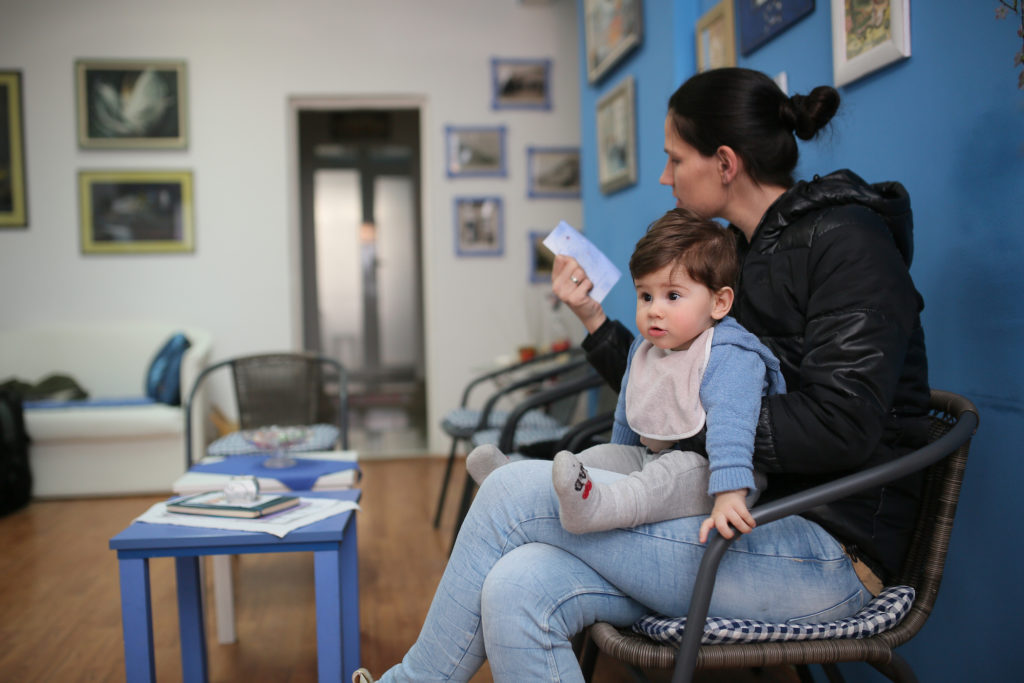Court to government: Stop targeting pregnancy center City cannot force center to refer for abortions or post government-mandated signs
Media Contact
Ryan Colby 202-349-7219 media@becketlaw.org
Additional Information

WASHINGTON, D.C. – A non-profit pregnancy center that helps low-income women in Baltimore prevailed over a discriminatory city ordinance today. In Greater Baltimore Center for Pregnancy Concerns, Inc. v. Mayor and City Council of Baltimore, the U.S. Court of Appeals for the Fourth Circuit protected the Center from being forced to violate its conscience by referring for abortions or posting government messages about abortion on its walls.
The Greater Baltimore Center for Pregnancy Concerns provides help to women facing unplanned pregnancies. But a 2009 city ordinance forced the Center to either refer for abortions or display government abortion messaging on the walls of their church-owned property, in violation of their mission and conscience. In 2010, the Center sued the mayor and city council of Baltimore for the right to continue to serve and communicate with women who come to them for help in a way that respects each woman’s choice as well as the Center’s mission. The Center won in 2010, and, following the government’s appeals, the Center won again today.
“We are committed to serving women in need in a way that respects their choices, comforts them in a difficult time and is in line with our mission,” said Carol Clews, executive director of the Center for Pregnancy Concerns. “This court ruling means that we can do our job and the government can’t tell us what to say or how to say it.”
The Center helps nearly 10,000 women a year facing unplanned pregnancies. Volunteers help over 1,200 women for free with basic services like pregnancy tests, baby and maternity clothes, parenting classes, and job placement. The Center also counsels over 8,000 local women per year through its 24-hour helpline.
In 2009, the City of Baltimore targeted the Center, which operates out of Catholic Church-owned property, demanding they display a sign stating that they “do not provide or make referrals for abortion or birth control services,” even though they already inform women in welcome papers and a lobby sign about the caring services they do provide for free and also that they do not offer abortions. Yet the City of Baltimore did not require abortion clinics to display the services they do not offer, such as adoption or prenatal care. The Fourth Circuit’s decision today criticized Baltimore for adopting “retributive speech restrictions” on pro-life speakers, calling the restrictions a “grave violation” of “our nation’s dearest principles.”
“We are very pleased that the Fourth Circuit strongly upheld the First Amendment rights of religious and other nonprofit charities to speak and to serve those in need in the manner their conscience dictates, without undue government interference,” said Dave Kinkopf, of Gallagher, Evelius & Jones, which represents the Center.
“This is a victory for the First Amendment and for the women of Baltimore,” said Tom Schetelich, chairman of the board of the Greater Baltimore Center for Pregnancy Concerns.
“Today’s decision confirms that government has no place mandating speech—especially speech associated with deeply-held religious beliefs,” said Mark Rienzi, senior counsel at Becket, the non-profit religious liberty law firm also representing the Center. “The Center can now continue helping women in need without the government telling them how to talk about abortion.”
The Greater Baltimore Center for Pregnancy Concerns is represented by Gallagher Evelius & Jones, Becket, and Peter Basile from Ferguson, Schetelich & Ballew, P.A.
For more information or to arrange an interview with a Becket attorney, please contact Ryan Colby at media@becketlaw.org or 202-349-7219. Interviews can be arranged in English, Chinese, French, German, Portuguese, Russian, and Spanish.
###
Becket is a non-profit, public-interest law firm dedicated to protecting the free expression of all religious traditions and has a 100% win-rate before the United States Supreme Court. For over 20 years, it has successfully defended clients of all faiths, including Buddhists, Christians, Jews, Hindus, Muslims, Native Americans, Sikhs, and Zoroastrians (read more here).